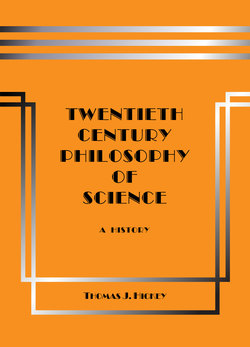Читать книгу Twentieth-Century Philosophy of Science: A History (Third Edition) - Thomas J. Hickey - Страница 89
На сайте Литреса книга снята с продажи.
4.09 Cultural Lags among Sciences
ОглавлениеNot only are there cultural lags between the institutionalized practices of science and philosophy of science, there are also cultural lags among the several sciences. Philosophers of science have preferred to examine physics and astronomy, because historically these have been the most advanced sciences since the historic Scientific Revolution benchmarked with Copernicus and Newton.
Institutional changes occur with lengthy time lags due to such impediments as intellectual mediocrity, technical incompetence, risk aversion, or vested interests in the conventional ideas and the received wisdom. The newer social and behavioral sciences have remained institutionally retarded. Naïve sociologists and economists are blithely complacent in their amateurish philosophizing about basic social-science research, often adopting prescriptions and proscriptions that contemporary philosophers of science recognize as anachronistic and fallacious. The result has been the emergence and survival of retarding philosophical superstitions in these retarded sciences, especially to the extent that they have looked to their own less successful histories to formulate their ersatz philosophies of science.
Thus sociologists and economists continue to enforce a romantic philosophy of science, because they believe that sociocultural sciences must have fundamentally different philosophies of science than the natural sciences. Similarly behaviorist psychologists continue to impose the anachronistic positivist philosophy of science. On the contemporary pragmatist philosophy these sciences are institutionally retarded, because they erroneously impose preconceived semantical and ontological commitments as criteria for scientific criticism. Pragmatists can agree with Popper, who said that science is “subjectless” meaning that science is not defined by any particular semantics or ontology.
Pragmatists tolerate any semantics or ontology that romantics or positivists may include in scientific explanations, theories and laws, but pragmatists recognize only the empirical criterion for criticism.
